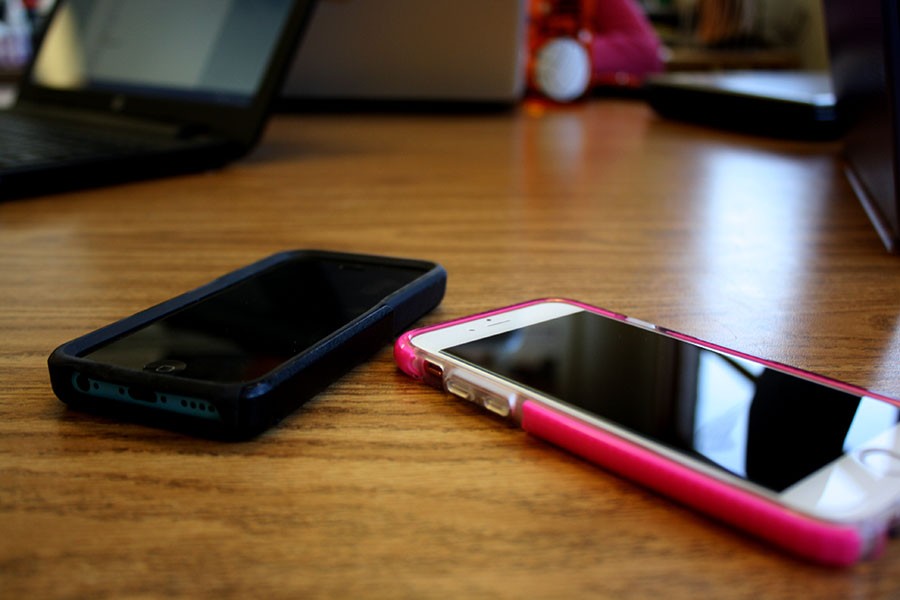Don’t I-Shame!
Phone shaming is a daily occurrence in school settings, even though technology is becoming more popular in classroom settings.
March 9, 2016
As you walk through the halls of South, you’ll see everybody on their phones. I myself am guilty of walking to my class with my eyes buried in my cell phone, and definitely have bumped into a person or two while doing it. When I have get togethers with my friends, either one on one or in groups, there are always moments when someone will be on their phone. As a consequence of this avid phone use among this generation is phone shaming, when people tell other people that they use their phones too much, or do other things to make them feel bad about it.
We as an age demographic are constantly using our phones. About 75% of teens have some kind of device akin to a cell phone, and many use them frequently. Many people of the last generation notice this, and complain and shame it. This should stop. Phones hold many purposes, and though they can have negative effects on some people’s lives, most people use their phones in a healthy manner.
Firstly many adults often tell teens to “get off their phones and experience the world” or to “try talking to people.” This may be the most ridiculous part of the shaming, because so many teens are communicating with their friends when they’re on their phones. Junior Maeve Bartell said that she uses her phone the most for “texting her friends and snapchatting.” For teens who are often busy with high school and extracurriculars, this maybe the only communication they really have time for, or maybe it’s just more convenient, or whatever the reason really. It’s pointless to tell someone to “get off their phone and try talking to people” when that’s exactly what they’re doing on their phone.
Some teens use their phones for more than just keeping in touch. “Mostly I use it for social media,” said sophomore Harun Samater, “It helps me laugh.” Smart phones open up a whole world of information commonly referred to as the Internet. In Samater’s case, he uses it to look at funny videos or photos his friends have shared.
Engineering teacher Bill Ruff also thinks that phones are very useful technological advances. “Students use them in class for calculators, looking up information, taking pictures of projects, and in that way, it’s phenomenal,” said Ruff. There’s just no substitute for a mini computer in your pocket.
Samater says it also helps him make new friends. “I like to connect with other people I don’t know,” he continued, referring to the people he might interact with on social networking sites who have the same interests as him. When it comes to experiencing the world, there are few cheaper and time efficient ways to start a conversation with someone from halfway across the globe.
Even though Samater says that he uses his phone a lot, he acknowledges that some people may use their phones too much. “If it affects your school, if it affects your relationships with other people in your life, it’s a problem,” he pointed out. But if it doesn’t, then he thinks you should just do whatever you want. Ruff agrees with the latter half of Samater’s statement. “You’ve seen [it happen]. You go out to dinner and there’s four people sitting on their phones. Why even bother going out to dinner if you’re not going to interact with the people?” Ruff argued.
At the end of the day, there may be people who probably do use their phones too much, and maybe it will get in the way of their social lives, their school lives, their relationships with other people. But it isn’t anyone’s place to judge someone else, and even besides that, all too often phone shaming comes into play in situations where said phones aren’t being harmful. So next time you’re thinking about telling someone that they use their phone too much around you, ask yourself first, are they actually harming themselves by using their phone the amount they do, or am I just too damn boring?





